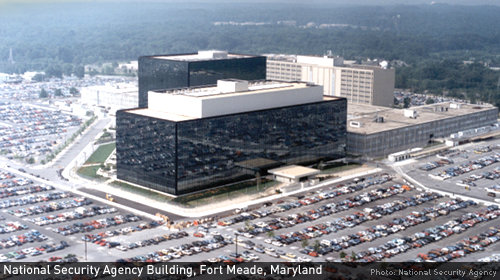└¤░─├┼┐¬Ż▒Żß╣ű on the Hill: NSA Surveillance "Intrusive and Unconstitutional"


This morning, I am testifying before the House Judiciary Committee on why the recently revealed NSA spying programs are unconstitutional and what Congress can do to rein in these unlawful and intrusive programs. Read my opening statement below. You can read the full testimony here.
Introductory Statement of Jameel Jaffer
House Judiciary Committee
Oversight Hearing on the Administration's Use of FISA Authorities
July 17, 2013
On behalf of the └¤░─├┼┐¬Ż▒Żß╣ű, thank you for the invitation to testify before the Committee.
Over the last six weeks it has become clear that the NSA is engaged in far-reaching, intrusive, and unconstitutional surveillance of Americans' communications.
- Under Section 215 of the Patriot Act, the NSA is tracking every single phone call made by a resident of the United StatesÔÇöwho they called, when they called them, for how long they spoke. Until recently it was tracking ordinary Americans' Internet activity as well.
- Under Section 702 of FISA, and on the pretext of monitoring people outside the United States, the NSA is using Section 702 of FISA to build massive databases of Americans' domestic and international communicationsÔÇönot just so-called metadata, but content as well.
These programs have been made possible by huge advances in the technology of surveillance, but in many respects they resemble the generalized surveillance programs that led to the adoption of the Fourth Amendment more than two hundred years ago. The FISA court orders resemble general warrants, albeit general warrants for the digital age.
That the NSA is engaged in this unconstitutional surveillance is the result of defects both in the law itself and in the current oversight system.
- The Foreign Intelligence Surveillance Act affords the government sweeping power to monitor the communications of innocent people.
- Excessive secrecy has made congressional oversight difficult and public oversight impossible.
- Intelligence officials have repeatedly misled the public, Congress, and the courts about the nature and scope of the government's surveillance activities.
- Structural features of the Foreign Intelligence Surveillance Court have prevented that court from serving as an effective guardian of constitutional rights.
- And the ordinary federal courts have improperly used the "state secrets" and "standing" doctrines to place the NSA's activities beyond the reach of judicial review.
To say that the NSA's activities present a grave danger to American democracy is not an overstatement. Thirty-six years ago, after conducting a comprehensive investigation into the intelligence abuses of the previous decades, the Church Committee warned that inadequate regulations on government surveillance "threaten[ed] to undermine our democratic society and fundamentally alter its nature." This warning should have even more resonance today than it did in 1976, because in recent decades the NSA's resources have grown, statutory and constitutional limitations have been steadily eroded, and the technology of surveillance has become exponentially more powerful.
Because the problem Congress confronts today has many roots, there is no single solution to it. But there are a number of things that Congress should do right away:
- It should amend Sections 215 and 702 to expressly prohibit suspicionless or "dragnet" monitoring or tracking of Americans' communications.
- It should require the executive to release basic information about the government's use of foreign-intelligence-surveillance authorities, including those relating to pen registers and national security letters. The executive should be required to disclose, for each year:
- How many times each of these provisions was used
- How many individuals' privacy was implicated by the government's use of each provision
- And, with respect to any dragnet, generalized, or bulk surveillance program, the types of information that were collected.
- Congress should also require the publication of FISA court opinions that evaluate the meaning, scope, or constitutionality of the foreign-intelligence laws. The └¤░─├┼┐¬Ż▒Żß╣ű recently filed a motion before the FISA court arguing that the publication of these opinions is required by the First Amendment, but Congress need not wait for the FISA court to act. Congress has the authority and the obligation to ensure that Americans are not governed by a system of secret law.
- Finally, CongressÔÇöand this Committee in particularÔÇöshould hold additional hearings to consider further amendments to FISA, including amendments to make FISC proceedings more transparent.
Congress should not be indifferent to the government's accumulation of vast quantities of sensitive information about American's lives. This Committee in particular has a crucial role to play in ensuring that the government's efforts to protect the country do not compromise the freedoms that make the country worth protecting.
Thank you.
For more information on NSA spying: aclu.org//nsa-surveillance
Learn more about government surveillance and other civil liberties issues: Sign up for breaking news alerts, , and .

